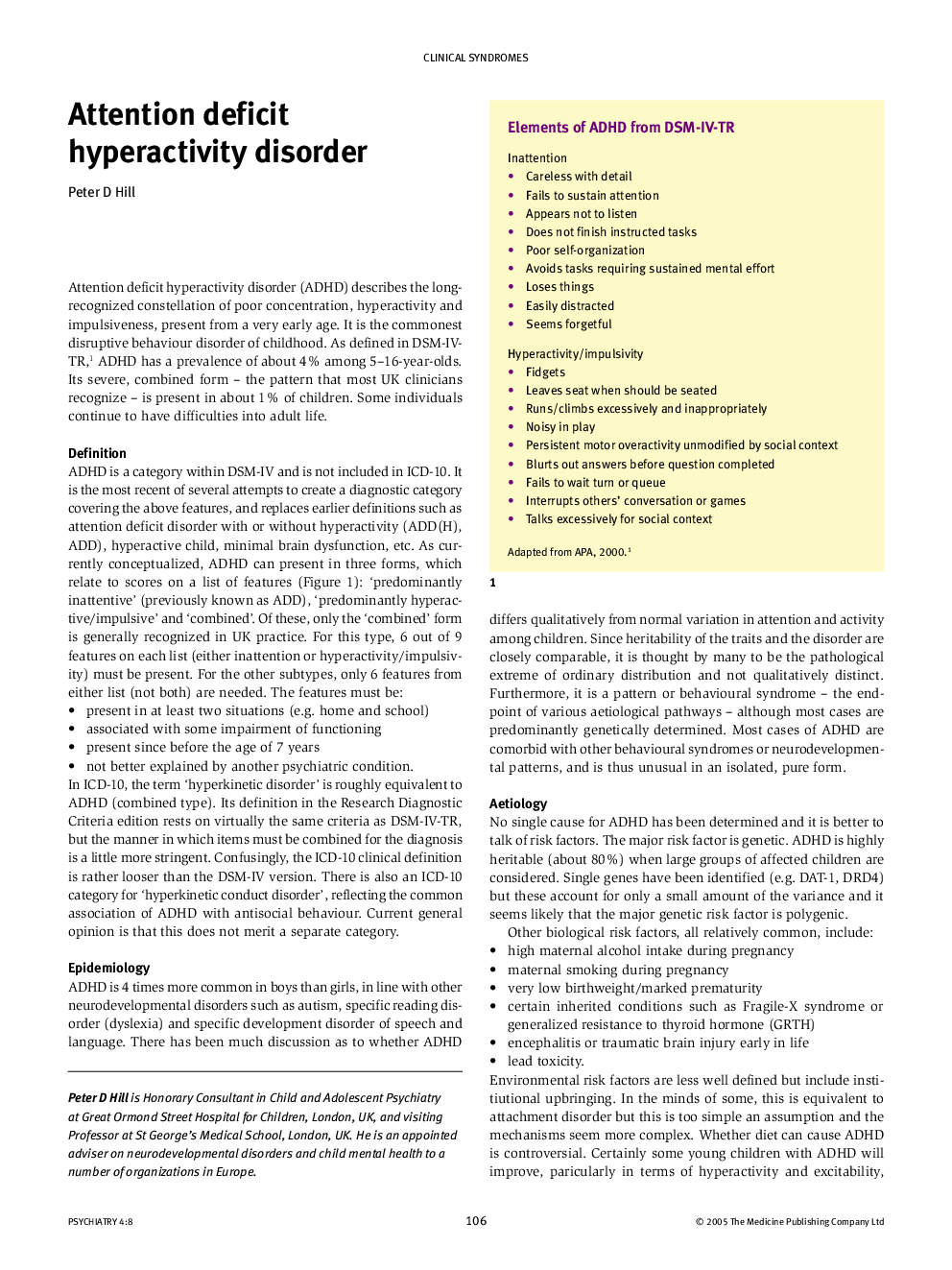| Article ID | Journal | Published Year | Pages | File Type |
|---|---|---|---|---|
| 9381833 | Psychiatry | 2005 | 4 Pages |
Abstract
Attention deficit hyperactivity disorder (ADHD) is an American term broadly equivalent to hyperkinetic disorder as recognized by the International Classification of Diseases. It is a behavioural syndrome characterized by severe, pervasive and chronic inattention, hyperactivity and impulsiveness sufficient to impair the child's functioning. In turn it is associated with subtle brain abnormalities, anatomical, functional and synaptic. Abnormalities of the dopamine transporter system seem particularly prevalent. Disordered higher psychological functioning can be understood in various ways and these may represent subtypes. The predominant though not exclusive risk factors for ADHD are genetic through several mechanisms. Other risk factors include a range of physical and environmental factors and it is probable that risk factors interact. The diagnosis is made clinically and needs to include the recognition of commonly coexistent developmental and behavioural problems. Treatment is predominantly by medication once straightforward behavioural interventions have been implemented. Long-term prognosis is poor as judged by longitudinal studies with academic and occupational underachievement, antisocial behavioural and substance misuse (not caused by treatment) being common.
Keywords
Related Topics
Health Sciences
Medicine and Dentistry
Psychiatry and Mental Health
Authors
Peter D Hill,
